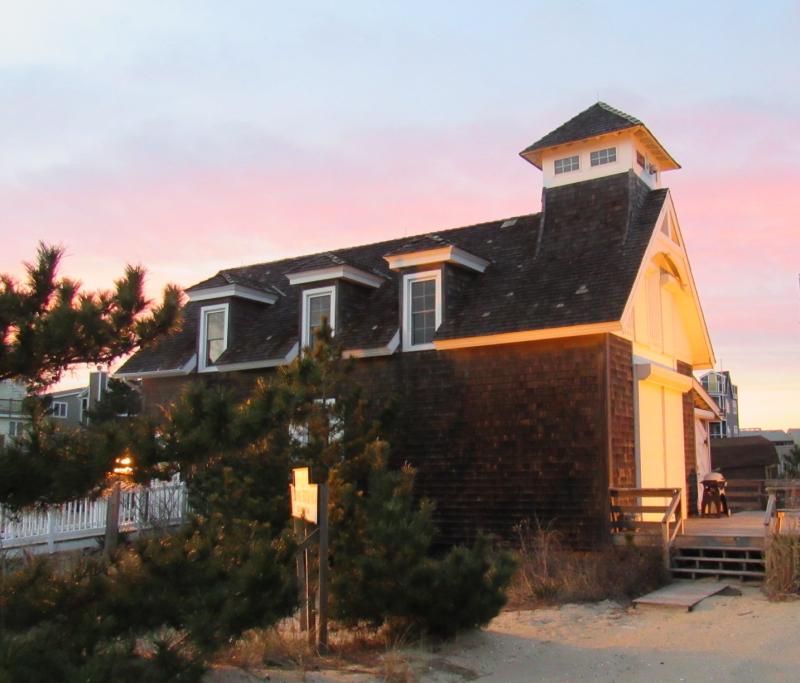Dewey won’t give LLCs a vote in elections
While the agenda of the June 21 Dewey Beach commissioners workshop led to a packed meeting, council dismissed advancing all items except a review of the maximum penalty the alderman can assess.
Of the seven items up for discussion as a result of Mayor Bill Stevens’ complete reading of the town code and charter, the possibilities of changing the requirement that at least two commissioners be town residents and expanding voting rights to include LLCs, LLPs and corporations drew the most attention.
Stevens said he evaluated the documents, which were created in 1981, with a 2024 mindset and to ensure consistency. For disclosure, Stevens noted he is a Dewey resident and his property is not in an LLC, which he said were also not in existence in 1981.
“It has nothing to do with a personal agenda or asking for change, but just having a conversation,” he said. “I can say, honestly, what I thought was going to be a positive of, hey let's talk about what we’ve got going on, has put more emails in my inbox than ever before.”
Stevens said he appreciated the public input, and referred to a conversation he had early in his tenure with then-Speaker of the House Rep. Pete Schwartzkopf, D-Rehoboth Beach, who advised him to not let town code get in the way of common sense.
“So, what is the common sense? What do we really have out there?” Stevens said. “Part of this is to just look at what we have, and these are several elements, and this is just a conversation, so just raise your hand and we’ll talk about it.”
Commissioner Gary Persinger said anyone could bring up an issue for consideration; it lets council know what the issues are. Stevens said he was simply throwing out topics for conversation.
“If there’s an overwhelming ‘you’re out of your mind,’ it’s done,” he said. “But since you’re here, I figured we could have a conversation.”
Any potential changes would be referred to the town charter and code committee, which would review them and submit recommendations to council, Stevens said. Any changes proposed by council would be submitted to Legislative Hall in January for approval before sign-off by the governor, Stevens said.
Regarding residency requirements, Commissioner Paul Bauer said having two resident commissioners is helpful in case one is unavailable. Persinger agreed, stating the mayor should be a full-time resident.
Noting all commissioners seemed to be in agreement, Stevens then asked for any public comment. With none forthcoming, Stevens said the issue was moot.
Audience members who spoke during public comment were against the possible expansion of voting rights to include LLCs, LLPs and corporations. Chuck Litchford said he saw no reason to allow LLCs to vote; he said he was concerned corporations could come in with unlimited resources to stack the council and manipulate laws.
Rhonda Housley said homeowners, not corporations whose stakeholders can live anywhere, should decide what happens in town. Russ Meyers said he has LLCs and as a property owner has one vote. Theoretically, he said, a person could buy five properties, put them all in LLCs and have five votes.
Claire Snyder-Hall said a consensus on the decision is apparent; she said getting such a charter change approved would be difficult. Via Zoom, David Moskowitz referred to House Bill 189, now on the ready list, which clarifies that corporations and other such entities may not be given a vote in municipal elections.
Persinger said he has not received communication from any LLC requesting the right to vote, and Stevens said it’s clear the public wants to maintain the status quo.
Regarding the role of commissioners in approving the budget and the town manager’s ability to aggregate numbers rather than specific line-item details of the approved budget, commissioners proposed no changes, saying they appreciate the level of detail contained within the budget for transparency.
Commissioners also decided against increasing the town’s $3 million indebtedness limit, noting the path toward that change would require a referendum.
About the sale of state-authorized lottery tickets, Stevens said he doesn’t want a casino in town, but the closest place to buy a lottery ticket is the Valero in the Forgotten Mile.
A business hasn’t asked about selling tickets, Stevens said, to which Commissioner David Jasinski asked why the town should go to the trouble of changing the law if no one is asking. Persinger said he agreed, and Town Counsel Fred Townsend said the sale of state-authorized lottery tickets isn’t prohibited in town.
“Fine, I’ll walk to Valero,” Stevens joked.
Commissioners tabled discussion on removing specific rates for accommodations and lodging taxes, and replacing them with a maximum rate for each. Stevens said a longer discussion would be held after state decision on the matter.
The town is locked into a 3% rate via charter, Stevens said, which accounted for $750,000 in revenue last year. Other towns are at 6% to 7%, Stevens said, and a referendum vote would be required to make a change.
The alderman’s ability to impose penalties in certain amounts arose when commissioners set the penalty for improper removal of trees at $3,000 several months ago, Stevens said. The current $1,000 maximum penalty was set in 2012, Townsend said.
During public comment, Alex Hannah suggested the town review maximum penalties in other jurisdictions and set the fee accordingly for consistency. The charter and code committee will investigate, commissioners said.



















































